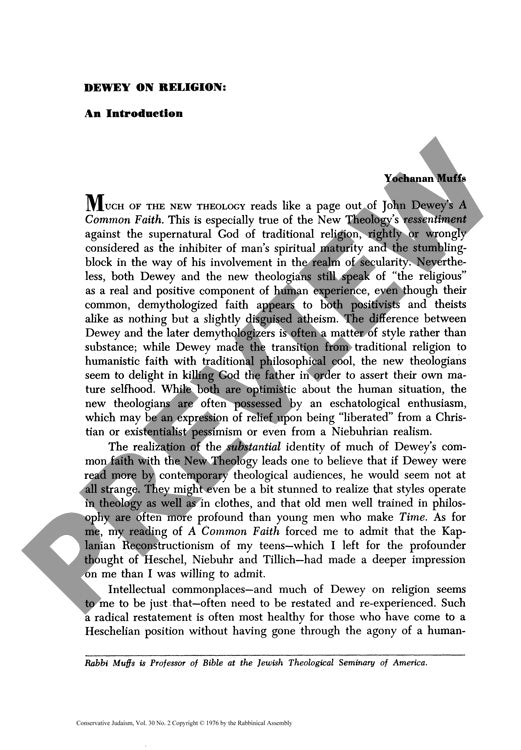Dewey on Religion an Introduction
Couldn't load pickup availability
John Dewey's influential philosophy of religion, articulated in *A Common Faith*, shares surprising commonalities with contemporary New Theology movements in rejecting supernatural conceptions of God while affirming religious experience as fundamental to human consciousness. Through comparative philosophical analysis alongside phenomenological and historical examination of traditional religious concepts, significant limitations emerge in Dewey's theological position. His mischaracterization of the Biblical God as inherently anti-world and reduction of divine concepts to abstract intellectual projections ultimately lacks psychological depth and poetic power. While Dewey correctly identifies problematic aspects of supernaturalism, his demythologized alternative fails to provide the imaginative and anthropological resources necessary for effective spiritual formation and social transformation. A more nuanced approach of "re-mythologizing" rather than demythologizing theology would allow anthropomorphic religious language to serve as psychologically profound models of human development without requiring ontological commitments to supernatural entities. This analysis points toward transcending the dichotomy between traditional theism and secular humanism, presenting religious experience as potentially revelatory of transcendent mystery without demanding supernatural metaphysics.

More Information
-
Physical Description
-
Publication Information
Published 1976
ISBN
-
Publication Credits
Yochanan Muffs

